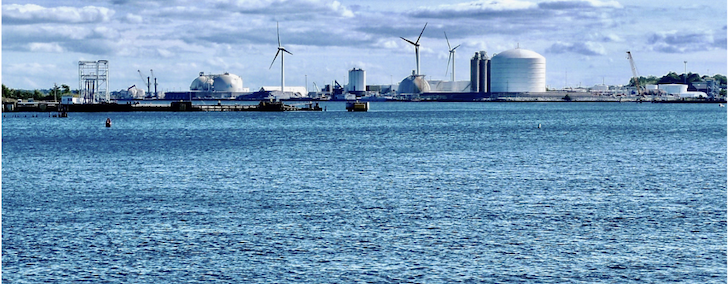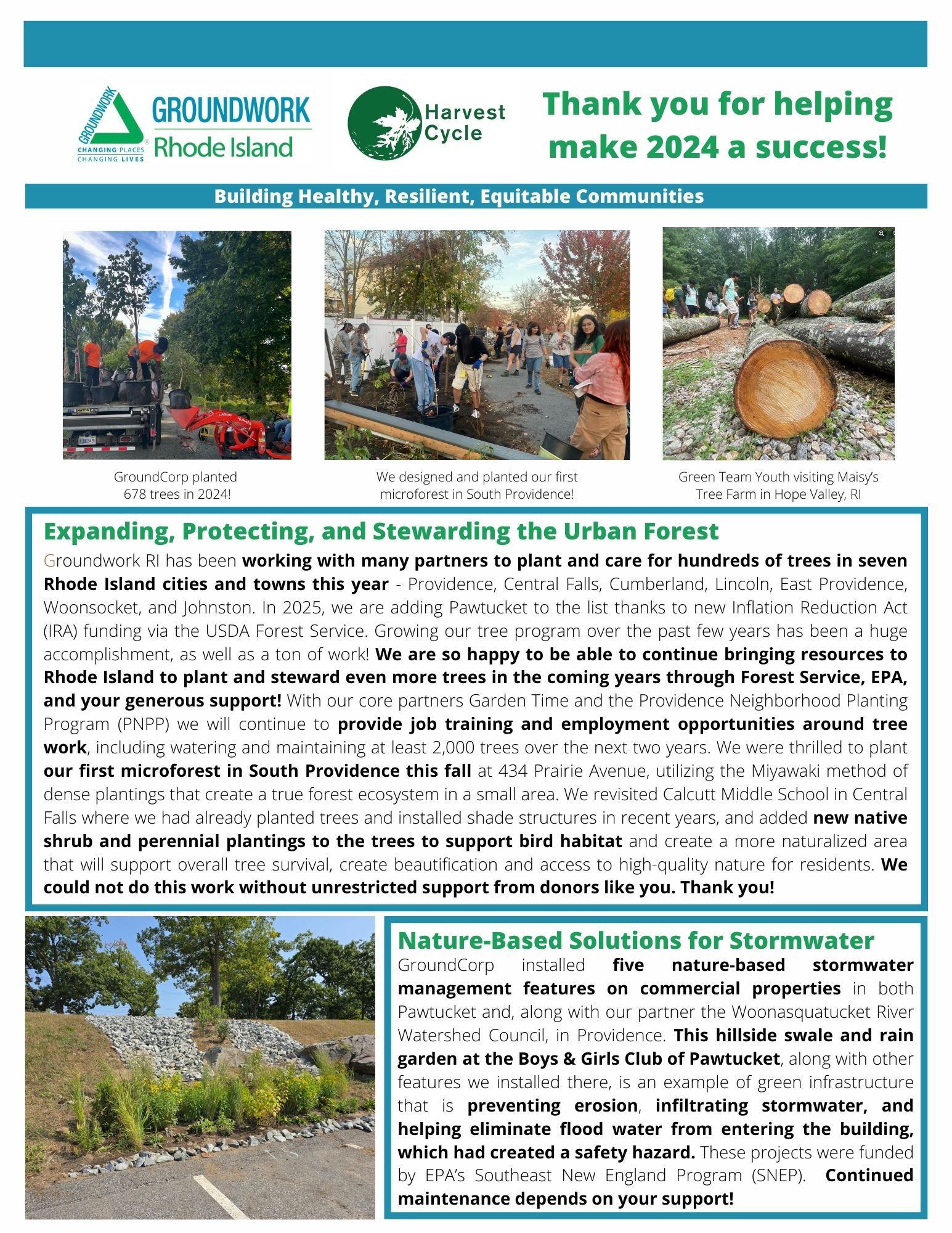
Groundwork RI Awarded 11th Hour Racing Grant
We are thrilled to announce that 11th Hour Racing has awarded Groundwork Rhode Island a grant this year, allowing us to hire a full-time staff person to run our Harvest Cycle compost program – Katie Murphy – who previously worked for us for two years as an AmeriCorps VISTA. As part of the grant, Katie will develop and implement a series of compost application workshops for farmers, gardeners, and urban residents throughout Rhode Island to identify end-users for our compost, and provide education and training on alternatives to chemical fertilizers. We are excited to join this community of 11th Hour grantees that are working to address ocean health and the environmental challenges of coastal communities.
The health of the world’s oceans is intimately tied to the health of its soils. Healthy, nutrient-rich soil absorbs carbon, lessening pressure on oceans to be the world’s primary carbon sink. The healthier the soil in a particular area is, the greater diversity and abundance of microbial life, which allows it to absorb and assimilate more carbon dioxide and retain more rainwater. As industrial agriculture depletes our soil of nutrients, however, less carbon is absorbed and our oceans suffer. In addition, industrial agriculture has turned increasingly to chemical fertilizers with high concentrations of specific nutrients that cannot be properly taken up by the soil. These excess chemicals enter our oceans as pollutants, causing toxic cyanobacteria blooms and increasing the nitrogen content of the water. Polluted stormwater runoff is also found in non-agricultural areas, exacerbated by the high percentage of impervious surfaces found in cities and suburbs. Efforts to restore urban soil and create new green space, including gardens to grow food, helps improve the water quality of local ponds and rivers, and ultimately the oceans fed by these smaller water bodies.
The compost process is an essential tool to reverse these trends. Diverting food scraps from landfills reduces methane emissions, and compost returns nutrients to depleted soils. Soils that have been treated with compost are healthier than those left untreated or treated with chemical fertilizers. They produce healthier, larger plants that contain more nutrients to feed people. They also contain a greater diversity of microbial life and absorb more carbon dioxide, making them indispensable to carbon drawdown and sequestration. Soils are able to take up nutrients in the form of compost much easier than from pure chemical fertilizers, greatly reducing the risk of runoff pollution entering waterways. Compost is essential to repairing urban soil that has been polluted for centuries by industry and development practices. Lastly, climate change makes growing food locally, including in healthy, nutrient-rich soil within the urban environment, an even more important component to ensuring food security and reducing climate emissions.



